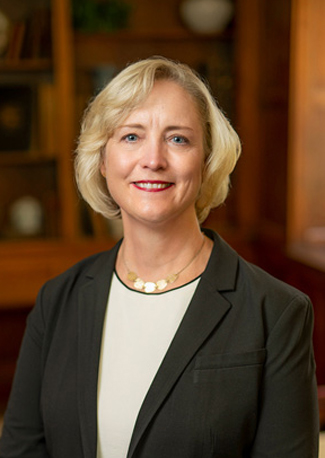Vanderbilt University released today the findings of two surveys conducted earlier this year assessing student, postdoctoral fellow, and faculty experiences with sexual assault and sexual misconduct.
The survey results showed a highly engaged and informed campus community, united in its response around the need to address persistent issues of sexual assault and misconduct on campus.

“Sexual assault and misconduct are not tolerated in any way at Vanderbilt. We are committed to working together to prevent and eliminate all forms of sexual harassment, and to ensure a safe and welcoming environment. This requires the engagement of every member of our campus community,” said Interim Chancellor and Provost Susan R. Wente. “I am grateful to all who have stepped forward to offer their input and share their experiences. We will continue working with students, faculty and staff and use the information from these surveys to advance our efforts and confront this societal problem.”
Vanderbilt was one of 33 institutions to partner with the Association of American Universities to conduct the Student Campus Climate Survey on Sexual Assault and Misconduct of undergraduate, graduate and professional students in February 2019.
Vanderbilt University-employed faculty and postdoctoral fellows were invited to respond to a separate sexual harassment survey in spring 2019, and Vanderbilt University-employed staff will be invited to respond to the same survey in spring 2020. View the faculty and postdoctoral fellow report findings and additional details.
AAU also released today the aggregate results for the institutions participating in the student survey, providing a broader look at how sexual assault and sexual misconduct are affecting colleges and universities across the country.
A total of 12,201 Vanderbilt undergraduate, graduate and professional students were invited to complete the survey. The response rate was 32.9% or 4,018 students—this was higher than AAU peers. Overall, results showed that Vanderbilt students better understand how to report an incident than their AAU peers, reflecting campus-wide efforts to enhance programming and resources to address sexual assault and misconduct.
Well over 90% of students surveyed said they had completed training on these issues, understand Vanderbilt’s policies and where to find help, and have confidence the report would be taken seriously. Together, these responses show the engagement of Vanderbilt students, staff and faculty in working together to create an open and supportive community committed to addressing sexual assault and sexual misconduct.
While only 6% of students said they are “very” or “extremely” concerned that they will be a victim in the future, 32.6% of students responded that sexual violence is “very” or “extremely” problematic at Vanderbilt. Twenty-seven percent of undergraduate women said they have experienced nonconsensual sexual contact involving physical force or the inability to consent or stop what was happening at some point in their time at Vanderbilt, and about 12% of undergraduate women have experienced this during the 2018-19 academic year, the year of the survey.

Additionally, 29.8% of students who identified as transgender, genderqueer and questioning or not identified/nonbinary had this experience at some point in their time at Vanderbilt, and 10% during the 2018-19 school year.
“These sobering findings will serve as a valuable tool in sparking conversations and action across campus at every level. We can and must do better when it comes to addressing the serious issues of sexual assault and misconduct,” said Dean of Students Mark Bandas. “While the survey results show that our campus is informed and engaged on these issues, there is still much work we must do together as a community to address them. This is critical with regard to our women students and those who self-identified as transgender, genderqueer and questioning or not identified/nonbinary, who reported experiencing sexual assault and misconduct at higher rates than other respondents.”
Though different survey instruments were used in 2015 when Vanderbilt conducted its first climate survey, the university was able to identify some trends, including:
- There does not appear to be evidence of an increase in prevalence of sexual misconduct from spring 2015 to spring 2019.
- Perpetrators continue to be primarily other students and in some cases friends of the victims.
- Of the 11,615 students surveyed in 2015, 48% reported having been subject to harassing behaviors (including crude or offensive jokes or comments of a sexual nature) at Vanderbilt versus 44% in 2019.
- Significantly more students reported receiving training in 2019 (91%), compared to 2015 (56%).
- More students believe a report would be taken seriously in 2019 (98%), compared to 2015 (83%).
Vanderbilt is committed to reviewing these results and acting on the information gathered. Next steps at Vanderbilt will include:
- The Provost’s Sexual Misconduct Prevention Committee will review the findings released today and issue recommendations for the Vanderbilt community. The committee will also be charged with using the findings to inform the Provost’s Women’s Advancement & Equity (WAVE) Council. Through the report and subsequent recommendations, the committee will propose university-wide action items; support schools and colleges in the work of developing localized action plans; collaborate with student offices and organizations that will respond to the climate survey; and recommend a schedule for future survey administration.
- The Provost’s Sexual Misconduct Prevention Committee will also review the results from the faculty and postdoctoral fellow survey, advise the Provost’s WAVE Council, and collaborate with colleges and schools to develop recommendations for faculty and postdocs based on the results. The committee supports evidence-based policies and practices for addressing and preventing all forms of sexual misconduct. The PSMPC includes faculty members from all Provost-reporting schools.
- The university is actively seeking feedback from stakeholders across campus, and will hold a series of facilitated discussions on the survey findings.
- The campus community is encouraged to participate in the It’s On Us 2019 Fall Week of Action starting Oct. 28 on campus, and Vanderbilt will host a Nov. 19 event with the National Academies Action Collaborative on Preventing Sexual Harassment.
If you have been the victim of sexual misconduct or want to report an incident of sexual misconduct involving others, please contact the Project Safe Center for Sexual Misconduct Prevention and Response (615-322-SAFE (7233)) and/or the Vanderbilt University Title IX and Student Discrimination Office (615-343-9004).
Additional information and resources are available on Vanderbilt’s Preventing and Responding to Gender Harassment web portal.